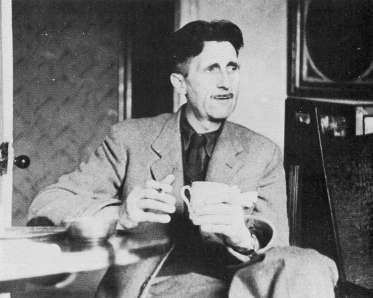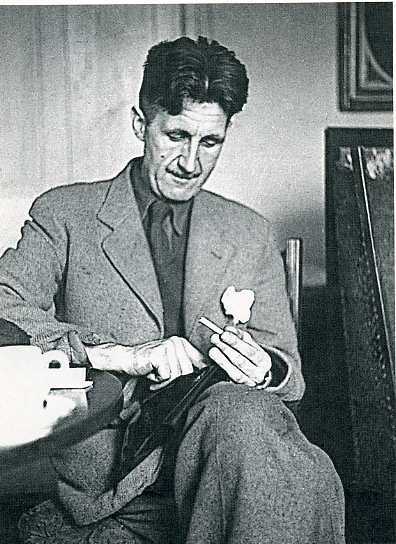The University of Liverpool continued its celebrated Flagship public lecture series in May with ‘The Unfinished Battle for LGBT Equality: The flaws of same-sex marriage law and other inequalities that remain to be overturned.’
 The event was hosted by The School of Law and Social Justice. The talk was given by the exemplary activist, Peter Tatchell. Tatchell last visited Liverpool in 1984. A very different social and political landscape.
The event was hosted by The School of Law and Social Justice. The talk was given by the exemplary activist, Peter Tatchell. Tatchell last visited Liverpool in 1984. A very different social and political landscape.

Peter was born in 1952 in Melbourne, Australia, and has been campaigning since 1967 on issues of human rights, democracy, civil liberties, LGBT equality and global justice.
In an interview with ten minutes hate after his lecture, Peter Tatchell discussed his years of campaigning and the influences that have shaped his outlook:
Parliament has usually been the last place to get the message. It’s taken extra parliamentary action to push MPs to legislate equality and civil rights. My inspirations are people like Mahatma Gandhi and Martin Luther King, they pioneered non-violent direct action as a way of pushing human rights issues onto the public and political agenda. Their strategy was very effective, the strategy I sought to pursue pushing forward LGBT rights.
10mh: Can you discuss your early campaign work with OutRage! and its impact on LGBT rights?
With a protest every other week, it helped normalise LGBT issues, raising public awareness about the scale of discrimination, putting political leaders under pressure to change their policies.
10mh: UKIP and other far right parties are gaining votes due to public disenchantment with mainstream political parties. What would your advice be to non-voters?
Support for more conservative right-wing parties is still significant, a worrying trend if that is sustained over an extended period of time. The support UKIP is getting is a protest vote, people disaffected by the main parties.
My response is if people are disaffected by the main parties, why not vote for a more progressive party like the Greens? It is worrying that people who are disenchanted by the political system choose to gravitate towards a party that certainly has a lot of prejudiced members, even if their policies are not avowedly negative.
10mh: The T in LGBT is sometimes overlooked, what are your views on this?
Transgender rights are the new frontier, the new front line: gender identity, not just for Trans people, for everyone. ‘Behave a certain way because you are a man, because you are a woman’ impacts on the spontaneous nature that we may have.
People should be free to express their gender and sexuality in whatever way they see appropriate, we need to break down masculine/feminine – it inhibits people from fulfilling their true potential.
10mh: Some Universities have allowed far right Islamist preachers, or hate clerics, into campuses to provide lectures on the grounds that they can talk but cannot preach hate crime. Is this acceptable?
These organisations have a right to hold their own meetings in their own premises or to hire a hotel but they certainly should not be given publicly funded premises like Universities.
Those who host meetings and insist women are segregated from men, extremist preachers who advocate killing gay people should not be allowed to speak. The Federation for Student Islamic Societies is not doing enough to block those speakers and not practice gender segregation.
Universities are supposed to be places of enlightenment and equality. It clearly sends the wrong signal – making LGBT people feel under threat in some universities. Some of these extreme groups advocate punishment for women who have sex out of marriage who are not veiled, also preach that Muslims who turn away from their faith should be killed. These kinds of reactionary views need to be challenged and blocked from taking place on campus.
Hate preachers should not be given any platform, no place at a university. Organisations like the BNP, Nick Griffin, given his past record, even if he was going to talk about his love of flower arranging.
Fascism has no place in a University. Free speech does not include inciting hatred and violence to other human beings.
The lecture looked at the significant legal LGBT changes in the last decade. Celebrating victories that have been won only by a collective effort and illustrating the work that still needs to be done.

It is assumed that the United Kingdom has always been at the forefront of positive change; however, it was alarming to note that most aspects of gay life remained criminal until recent years. Tatchell highlighted how in 1999 the UK had the most anti-gay laws in the world. The Draconian law that imprisoned Oscar Wilde in 1895 for gross indecency was only repealed in 2003. A law against buggery that was drawn up in 1533 was only repealed eleven years ago, under the term ‘unnatural offences’. Even the very language of the law was bigoted.
Surprisingly, the 1949 Marriage Act was the UK’s main marriage law. It does not stipulate that marriage partners have to be male and female. In the early 1970s, there was no ban on same-sex marriage: it was de facto legal. The prohibition was introduced in response to the emergence of the gay liberation movement and the fear that a lack of legal impediment would allow transgender and same-sex couples to marry. Marriage between two people of the same gender was outlawed under the Matrimonial Causes Act 1973.
Realistically it would have made perfect sense for the government to just revert the seventies law, instead of creating a new one. So-called ‘Gay Marriage laws’ still have discriminative elements attached. With regards to pension schemes, the bill does not grant LGBT married couples the same entitlements as married heterosexuals. It allows companies to limit surviving same-sex spouses’ pension payouts to post-2005 accrual only, even if the deceased partner had been paying into their pension since 1970. This perpetuates pension inequalities enshrined in civil partnership law.
The talk underlined campaigning that still needs to be undertaken.
Schools should be a safe environment. All forms of prejudice need to be challenged. Bullying in schools needs to be tackled, specifically addressing LGBT. Children are not born bigoted, they become bigoted and this should be challenged. Lessons in equality and diversity should be required by law in primary schools onwards. Tatchell proposed that equality and diversity need to be exam subjects and put into school reports, as important as core subjects. Sex and relationship education should be a mandatory requirement.
Training is the key and it has to come from the top, Michael Gove, it’s not fair for teachers to just know.
The speaker also highlighted the mistreatment of LGBT refugees in asylum detention centres, with just 14 days to fast track their asylum case. A process which ignores the time it takes to collate evidence. The aim seems to be to fail as many refugees as possible to appease The Daily Mail. It is a sad indictment of our society and values that questions are proposed to asylum seekers like ‘do you read GT magazine?’ or ‘Do you go to Heaven nightclub?’ Stereotypes being crassly applied.
The assumption that you can tell a person’s sexuality on the grounds of how somebody looks is ridiculous. Comments like, ‘she doesn’t look like a lesbian!’ or ‘We don’t believe you are gay’. It is a horrifying factor that people are photographing and or filming themselves having sex to prove that they are of a certain sexual orientation. Some of the cultures are very private and nudity is inappropriate.
The coalition government promised it would end some of the injustices but have only conducted some home office training on equality. This needs to change.
Then there is the work to be done with football. The Football Association is not using its power and wealth in an exemplary way. Positive ways forward could include putting adverts with anti-homophobic slogans in programmes. A video needs to be made with famous footballers talking about homophobia.
Homophobic hate crimes still exist 1 in 3 people have been subjected to insults, abuse or threats. In London in the last year there were over 100 homophobic attacks and that’s just the ones that were actually reported. So it is still a major problem. All hate crime should be unacceptable in a democratic civilised society.
To help combat these battles, he urges people to vote for LGBT friendly candidates to wipe out the vicious behaviour of the likes of UKIP and the BNP.
The young LGBT are growing up in a Britain worlds apart from the one of the past. A world where there was hardly any LGBT visibility and no out public gay figures. So essentially we have moved mountains but there are still a few hills. Tatchell encourages solidarity and community activism as the way forward:
I am one, we are many.
The Peter Tatchell Foundation (PTF) seeks to promote and protect the human rights of individuals, communities and nations, in the UK and internationally, in accordance with established national and international human rights law.

Peter Tatchell is a pioneer and a distinctive voice in British politics. His portfolio of campaigning includes opposing Section 28 of the Local Government Act 1988,the controversial addition of Section 2A to the Local Government Act 1986 (affecting England, Wales and Scotland and Northern Ireland), enacted on 24 May 1988.
The amendment stated that a local authority ‘shall not intentionally promote homosexuality or publish material with the intention of promoting homosexuality’ or ‘promote the teaching in any maintained school of the acceptability of homosexuality as a pretended family relationship’. It was repealed on 21 June 2000 in Scotland as one of the first pieces of legislation enacted by the new Scottish Parliament, and on 18 November 2003 in the rest of Great Britain by section 122 of the Local Government Act 2003.
Tatchell has boosted tolerance and understanding, a human rights approach to personal but political beliefs.
- In 2009, he co-proposed a UN Global Human Rights Index, to measure and rank the human rights record of every country – with the aim of creating a human rights league table to highlight the best and worst countries and thereby incentivise governments to clean up their record and improve their human rights ranking.
- He coordinated the Equal Love campaign from 2010, in a bid to challenge the UK’s twin legal bans on same-sex civil marriages and opposite-sex civil partnerships. The following year, he organised four gay couples and four heterosexual couples to file a case in the European Court of Human Rights, arguing that sexual orientation discrimination in civil marriage and civil partnership law is unlawful under Articles 8, 12 and 14 of the European Convention on Human Rights.
- He has proposed an internationally binding UN Human Rights Convention enforceable through both national courts and the International Criminal Court; a permanent rapid-reaction UN peace-keeping force with the authority to intervene to stop genocide and war crimes; and a global agreement to cut military spending by 10 percent to fund the eradication of hunger, disease, illiteracy, unemployment and homelessness in the developing world.
Like this:
Like Loading...
















